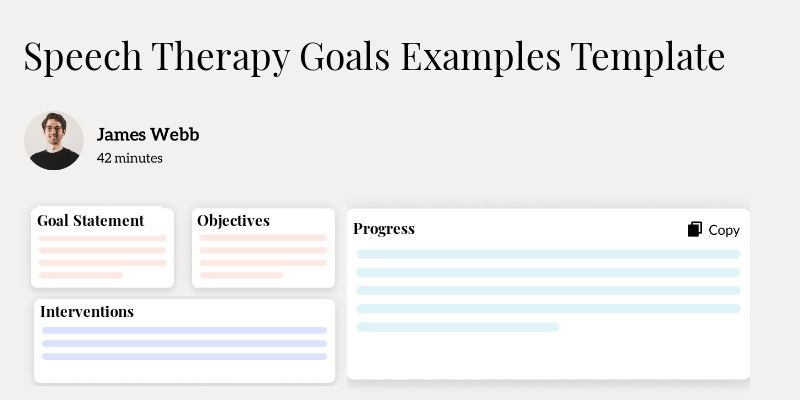
Medical Certificate Template
Hey there! So you've found yourself tasked with creating or interpreting a medical certificate, but the process feels a bit overwhelming. You're not alone. Many find the world of medical documentation dense and perplexing. Let's cut through the complexity together, armed with expert insights and a practical approach.
What Is a Medical Certificate Template?
A medical certificate template is a standardized document used by healthcare providers to officially record a patient's medical condition. It serves as a formal confirmation of an individual's health status or medical leave requirement.
The template is crucial in documenting findings consistently and professionally. It also simplifies the process for healthcare practitioners while ensuring patients' legal and employment needs are precisely met.
Key Components of a Medical Certificate Template
Understanding its core parts ensures efficiency and consistency in documentation:
- Patient's personal details: Name, date of birth, and contact information.
- Medical practitioner's information: Name, qualification, and registration number.
- Examination date and duration of illness or medical condition.
- Details regarding the necessity of medical leave: Specific dates and justification.
- Signature and date signed by the medical practitioner.
- Optional comments or observations about the patient's condition.

How to Use a Medical Certificate Template: Step-by-Step Process
Step 1: Gather Patient Details
Ensure all patient personal and contact information is available for accurate documentation.
Step 2: Conduct a Thorough Examination
Perform the necessary medical assessment to gather all relevant details about the patient's condition.
Step 3: Fill Out the Template
Enter all collected information methodically in the template, starting with patient details followed by medical findings.
Step 4: Specify Leave Requirements
Provide clear dates and reasons for any medical leave, including any additional medical recommendations.
Step 5: Sign and Submit
Ensure the practitioner signs and dates the certificate before delivering it to the patient or relevant parties.
Benefits of a Medical Certificate
Benefit | Description |
|---|---|
Consistency | Ensures standardized information is recorded across different cases. |
Legal Protection | Provides necessary documentation to support medical claims and legal processes. |
Efficiency | Saves time for healthcare professionals and patients by maintaining a structured format. |
Record Keeping | Facilitates easy storage and retrieval for future reference or audits. |
Professionalism | Reflects a polished and credible image of the healthcare provider. |
Stakeholders in Medical Certificate
Various parties rely on medical certificates, each with unique needs:
- Patients: A patient uses a certificate to validate sick leave from work. For example, John, recovering from surgery, presents his certificate to HR to justify his two-week absence.
- Employers: HR departments use them to manage employee health-related absences. For instance, Emma's employer assesses her documented medical leave to plan workload adjustments.
- Insurance Companies: Insurers require certificates for processing claims. Like when Sarah submits her medical certificate to expedite her disability claim.
- Legal Authorities: Courts and legal entities may request them during proceedings, such as in personal injury cases.
- Educational Institutions: Schools may need them to excuse students from exams or classes due to health issues.
Example of a Medical Certificate PDF
For a visual reference, consider reviewing a comprehensive PDF version of a medical certificate sample. This can provide clarity on layout and required information.
Real-World Use Cases: Practical Impact of the Medical Certificate Template
The versatile nature of these templates makes them indispensable in numerous scenarios:
- Anna, an HR manager, swiftly verifies an employee's sick leave, ensuring operations continue smoothly.
- Tom secures a travel refund after his medical certificate underscores the necessity to cancel his trip.
- Susan's insurance claim is acknowledged faster as her accurate medical certificate supports her case.
- Mark's school provides academic accommodations based on his submitted certificate, helping him catch up post-illness.
Conclusion
Medical certificate templates are vital tools in healthcare documentation, providing consistency and clarity across various professional and personal scenarios. By simplifying the process, these templates ensure all stakeholders receive the necessary information efficiently, backing claims with standardization and precision. Equipped with this knowledge, you'll find handling medical certificates a more streamlined process.
Disclaimer: This article is for informational purposes only and does not constitute legal or medical advice. Always consult professional guidelines and regulatory bodies for specific compliance requirements.

Dr. Danni Steimberg
Dr. Danni Steimberg is a pediatrician at Schneider Children’s Medical Center with extensive experience in patient care, medical education, and healthcare innovation. He earned his MD from Semmelweis University and has worked at Kaplan Medical Center and Sheba Medical Center.
A medical certificate is more than a note – it is a legal document that must justify absence, benefits, or special accommodations. The CERT steps – Condition, Evidence, Restrictions, Timeframe – keep the form defensible and employer‑ready.
- Condition: State the primary diagnosis with ICD code plus a brief functional impact line to show medical relevance.
- Evidence: Include key exam findings, test results, or observations that confirm the diagnosis and support the recommended leave or limitation.
- Restrictions: Specify exact activity limits or accommodations (e.g., no lifting over 15 lbs, seated work only) so expectations are crystal clear.
- Timeframe: Give a precise start date and an end date or review date, demonstrating ongoing medical oversight and meeting HR policy requirements.
Frequently Asked Questions
Reduce burnout,
improve patient care.
Join thousands of clinicians already using AI to become more efficient.

Medical Chart Template
Discover practical Medical Chart templates to enhance your documentation efficiency.

Speech Therapy Goals Examples Template
Discover practical Speech Therapy Goals Examples Template templates to enhance your documentation efficiency.

Action Plan Template
Discover practical Action Plan templates to enhance your documentation efficiency.

